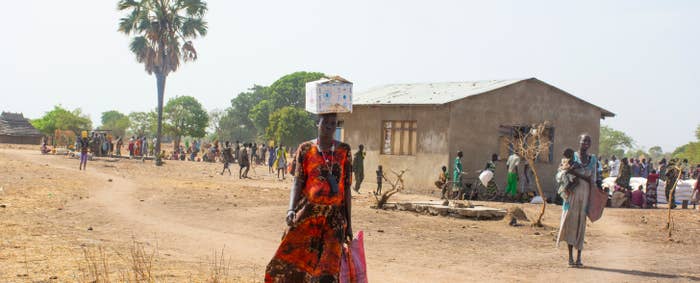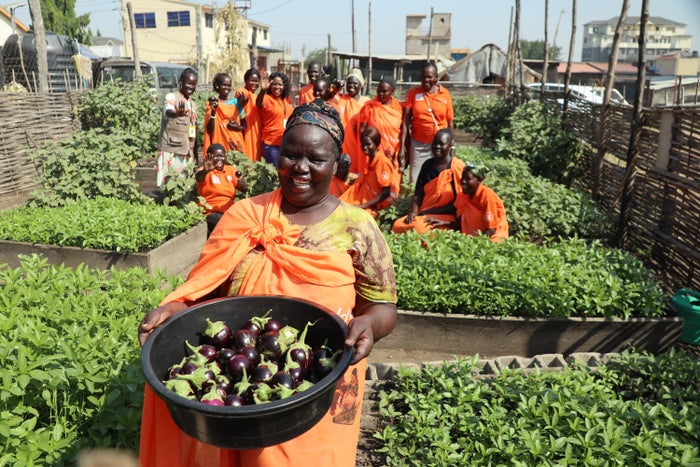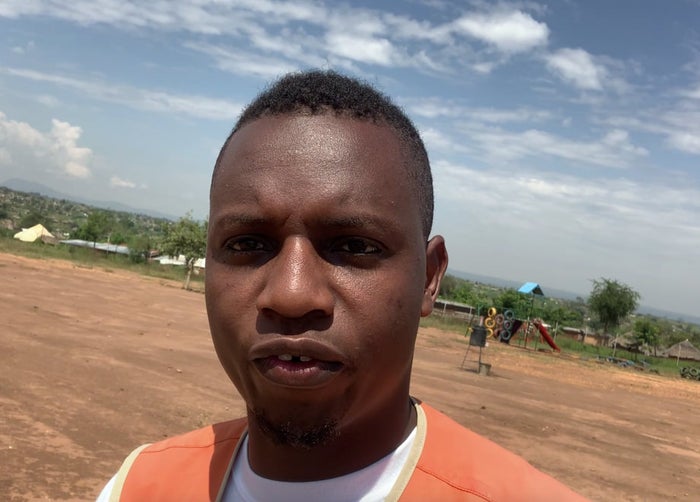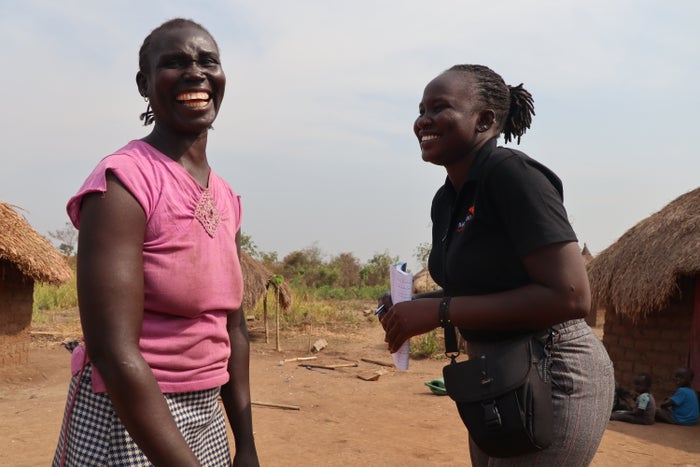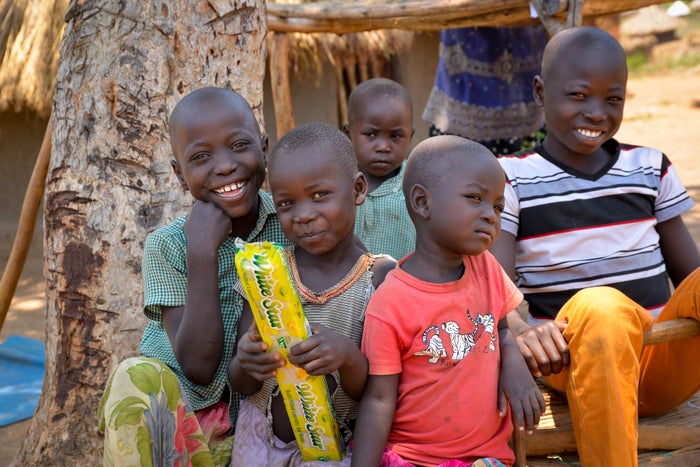In 2015, South Sudan was beginning to feel hope, again. After decades of instability and a heart-breaking civil war, peace was again reinstated in the world's newest country, South Sudan.
Fast forward to 2021, just ten years after the country gained independence and South Sudan and its people are being displaced at record levels with severe hunger and famine looming.
It’s a devastating reminder of how things can change in an instant and then escalate — war, violence, gender-based violence, economic breakdowns, Covid-19, drought, and crop failures have ensured South Sudan's bright future needs the world to act, now.
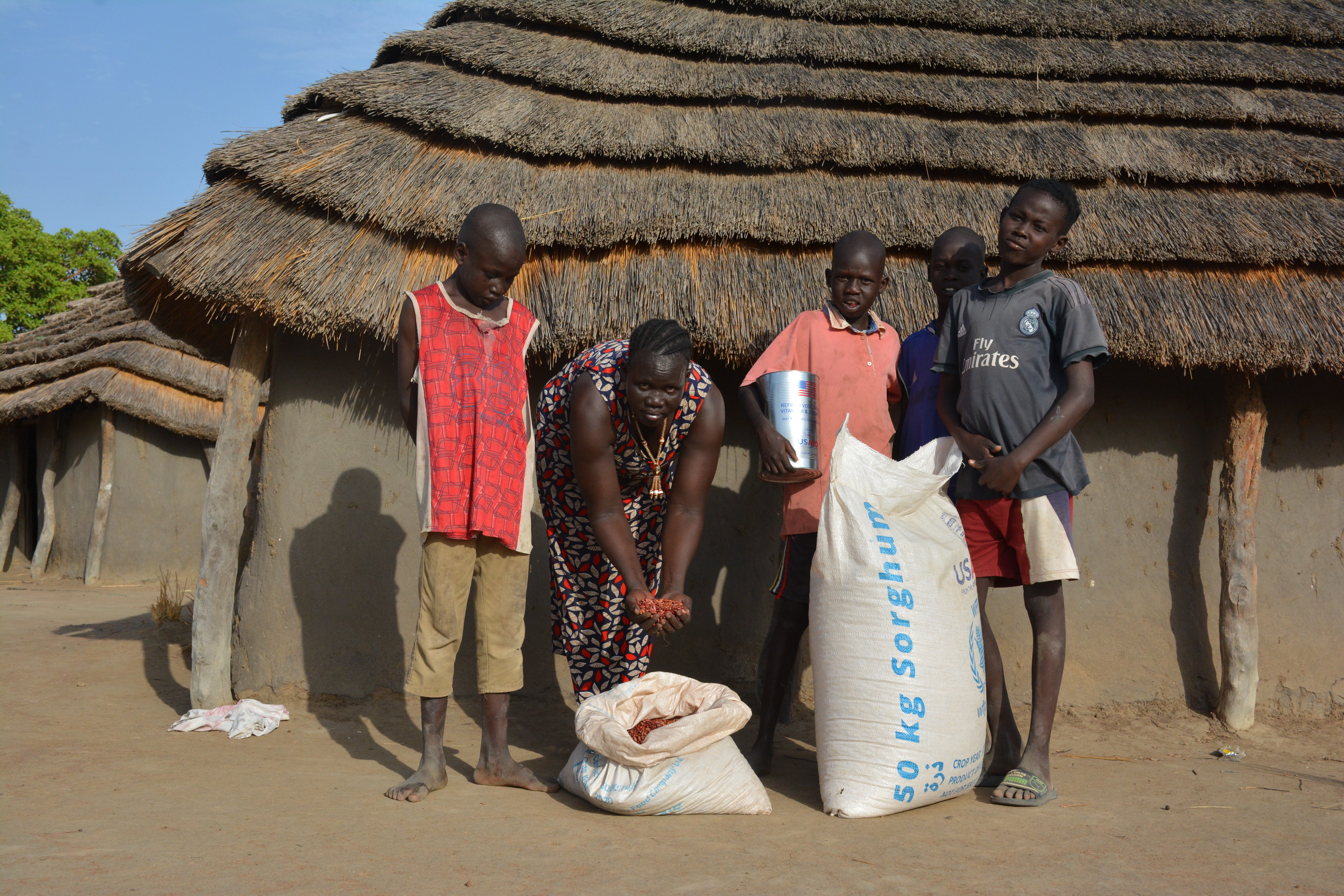
Monica Nyanut Nyok, 32 year old mother of five shows her food items that she received at Warrap distribution Centre at her home in Pagakdit village in Tonj North, South Sudan.
Jemima Tumalu
Fleeing for their lives, mother of five Monica Nyanut and her family are now displaced. They make up the 2.2 million South Sudanese who are clinging to the edge of existence with a long and uncertain road ahead of them.
“Before the clashes, I lived and supported my family well. Our farm also supplemented us with food. But the recent circumstances have robbed us of a good life.”
“As a mother, it hurts me when my family sleeps hungry,” she adds.
“Life is more difficult, and we often eat once a day. My shop was not doing well since most of the customers have fled for safety in other parts of the country. Without this food aid, many people in Tonj North would die of hunger,” says Monica.
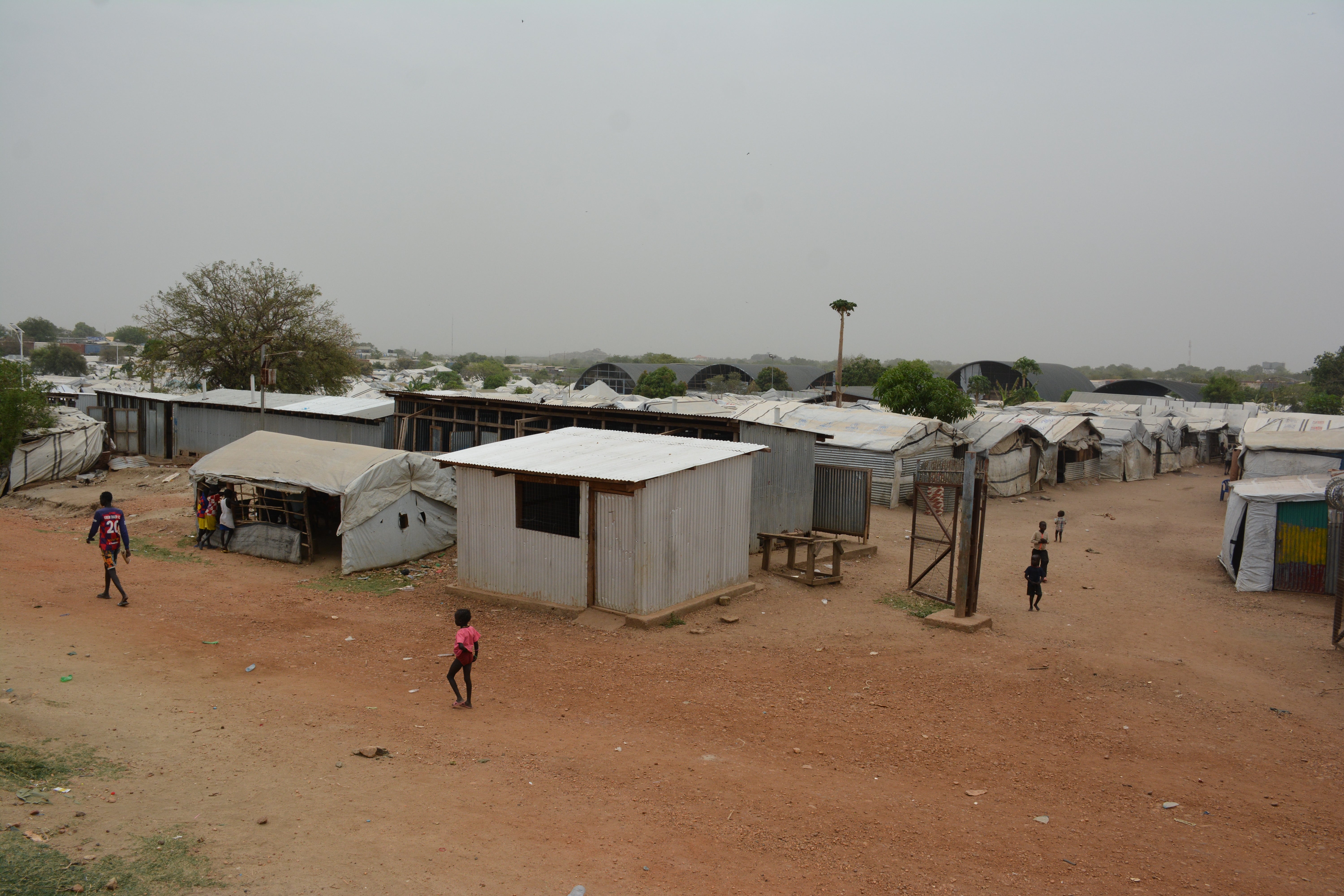
An IDP (Internally Displaced Person) settlement in South Sudan. According to the UNHCR nearly 1.8 million South Sudanese are displaced within their own country with millions more crossing borders into Ethiopia, Uganda, Sudan, fleeing violence, hunger and ongoing instability.
Emmanuel Ondogo & Jemima Tumalu
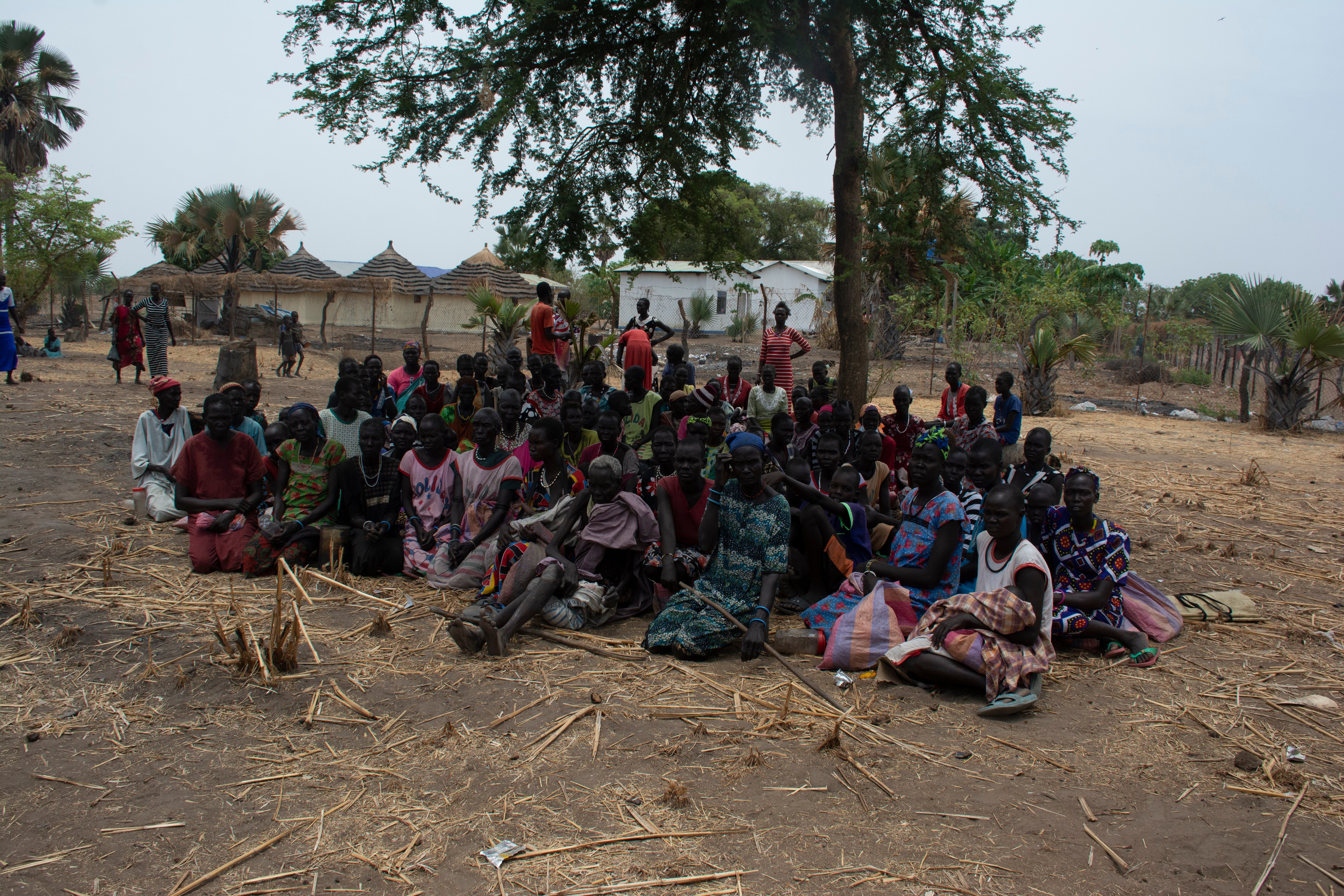
Group of Internally Displaced People (IDP) from Achol Akech village sit under a tree waiting to receive food aid. They have been away from their homes for three months and have no sufficient means to survive. The violence and conflict continues, so they must remain living in the IDP camp where they rely solely on humanitarian aid to survive.
Jemima Tumalu
Food insecurity is a threat to the lives of displaced people and refugees in South Sudan. In 2017, famine was declared in areas of the country, and with continuing unrest, it is only getting worse.
While food is critical for survival, getting aid to where it needs to be can prove difficult in dangerous and complex places. World Vision’s Food Assistance Project partners with the World Food Programme to distribute maize, vegetable oil, beans, salt, and therapeutic foods to the internally displaced people in areas of South Sudan.
In March 2021 alone, over 64,000 people, 42,579 of them children, were supported through general food distribution, school feeding and supplementary feeding programmes.
In places like South Sudan, DRC and Afghanistan food is more than a meal, it's survival.
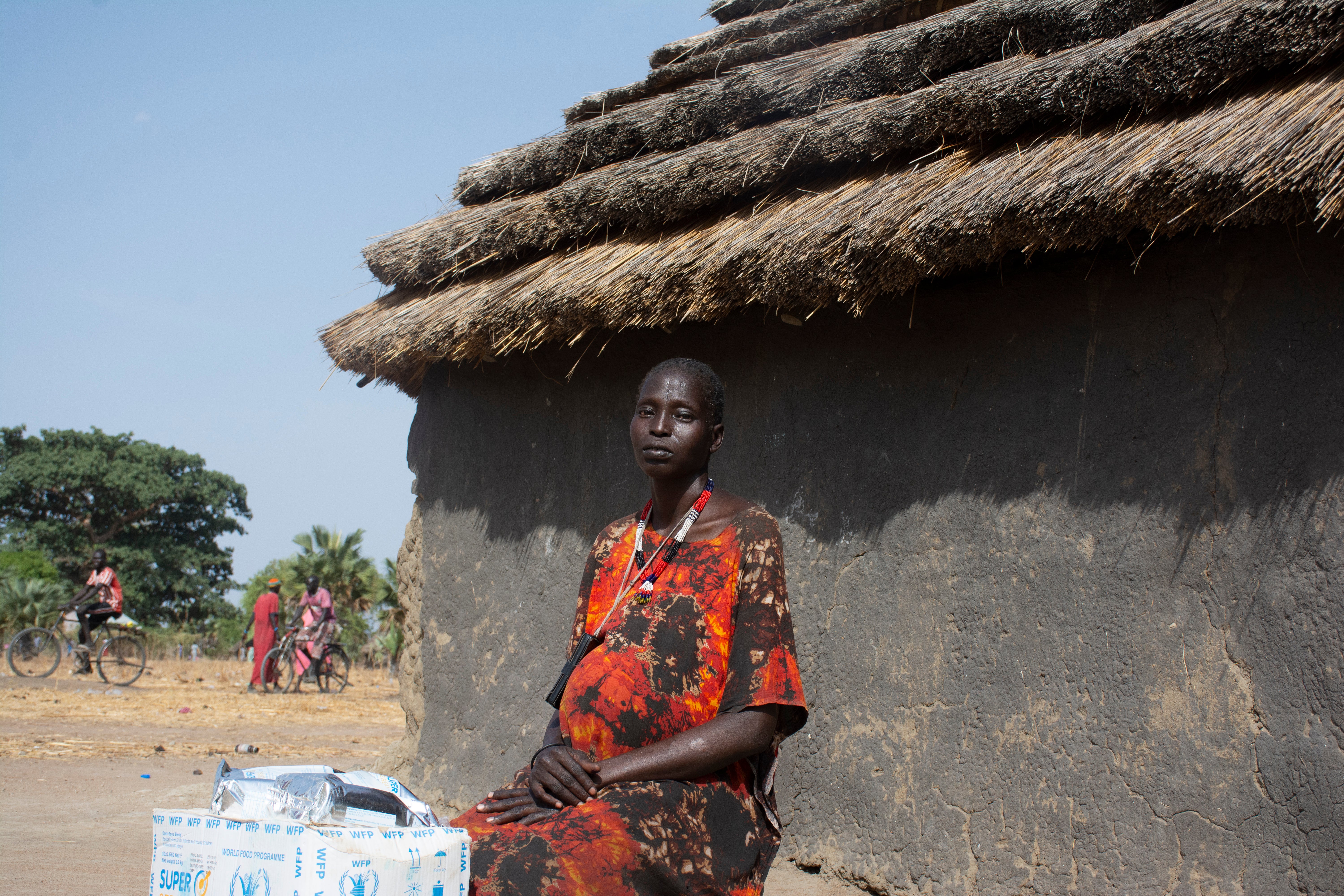
Agar Mayom, mother of five and carrying her sixth child came to the Warrap distribution Centre to receive her food and CSB package. She says,” This flour will make her and the unborn baby strong and healthy.”
Jemima Tumalu
What can I do?
It’s easy to feel helpless in situations like this but rest assured… you, us, everyone, together, can help make life-changing impact. And we are!
Here are two different ways you can be a part of the change.
- 1
Donate
Every gift makes a difference. Our Childhood Rescue fund helps children living in the world’s most dangerous places.
Donate Now - 2
Share on Social Media
Raising awareness is vital. Help make people aware of the situation and the difference we can make, together.
